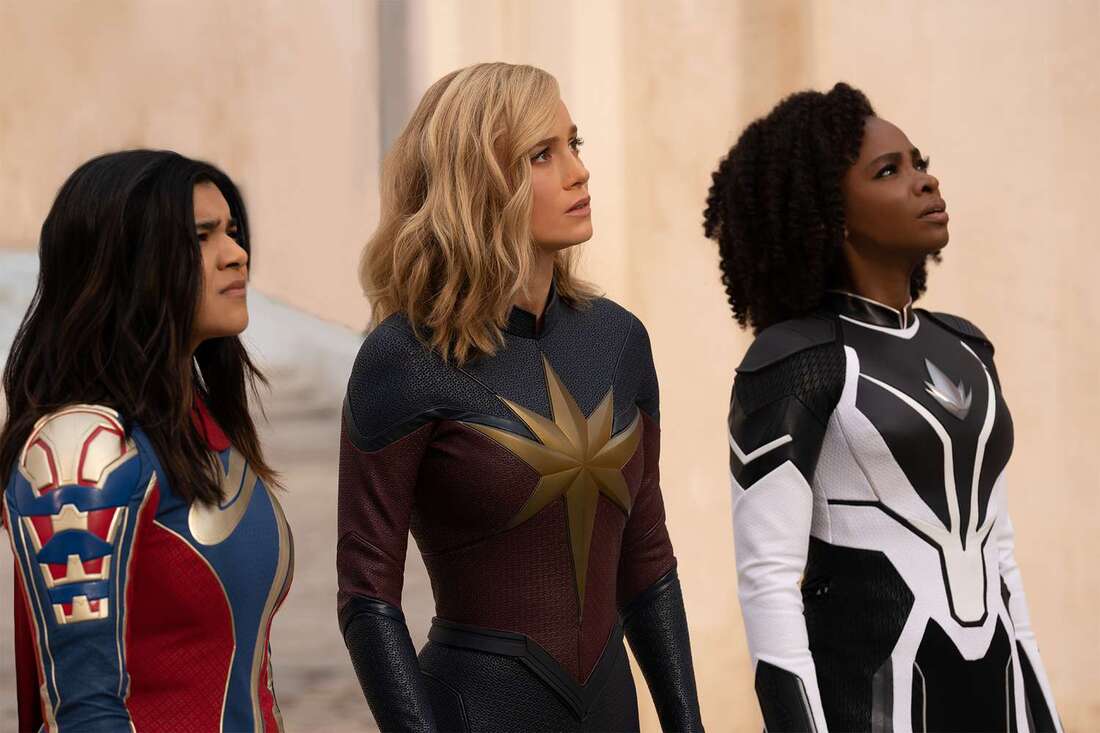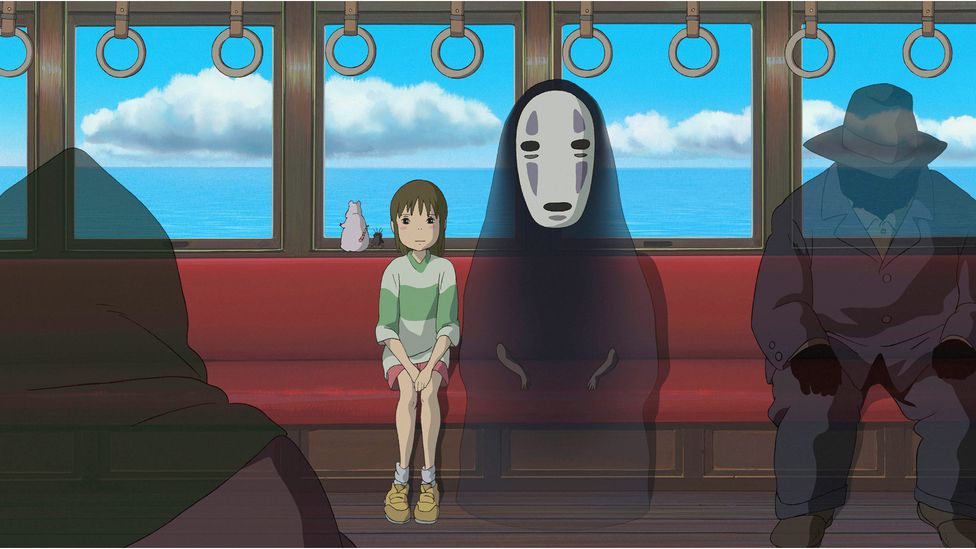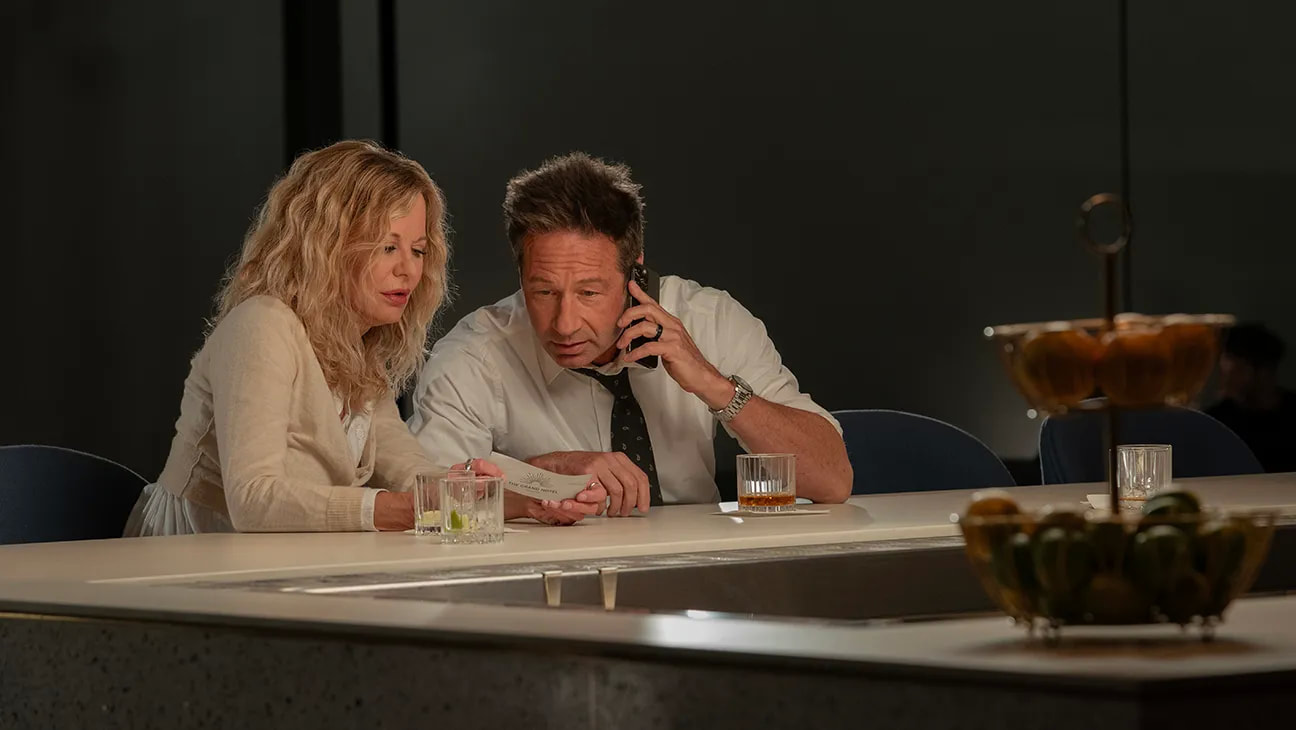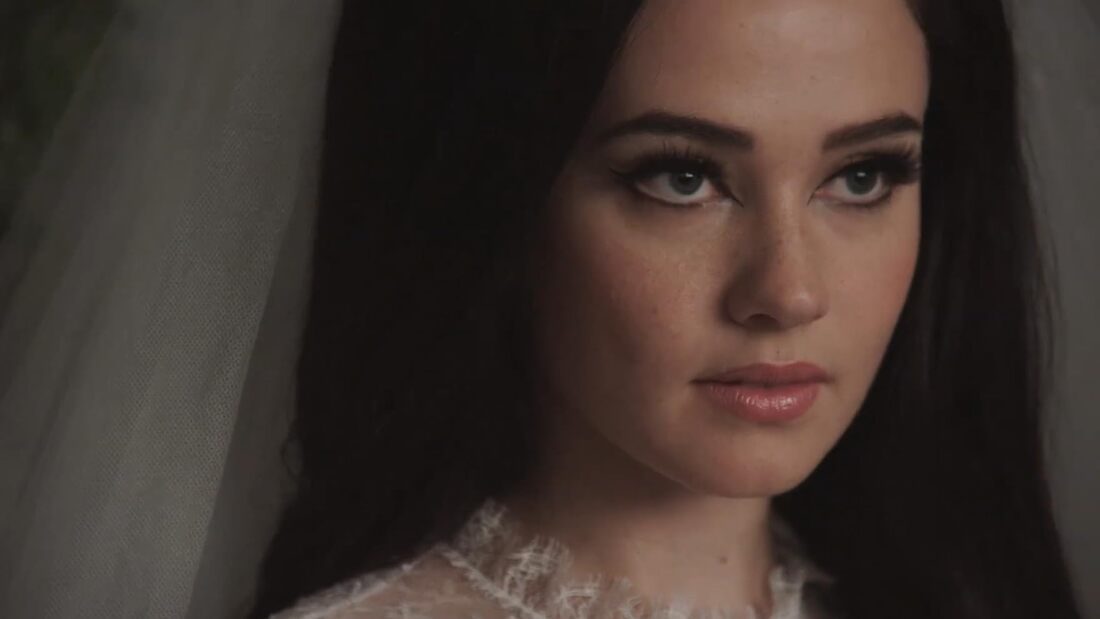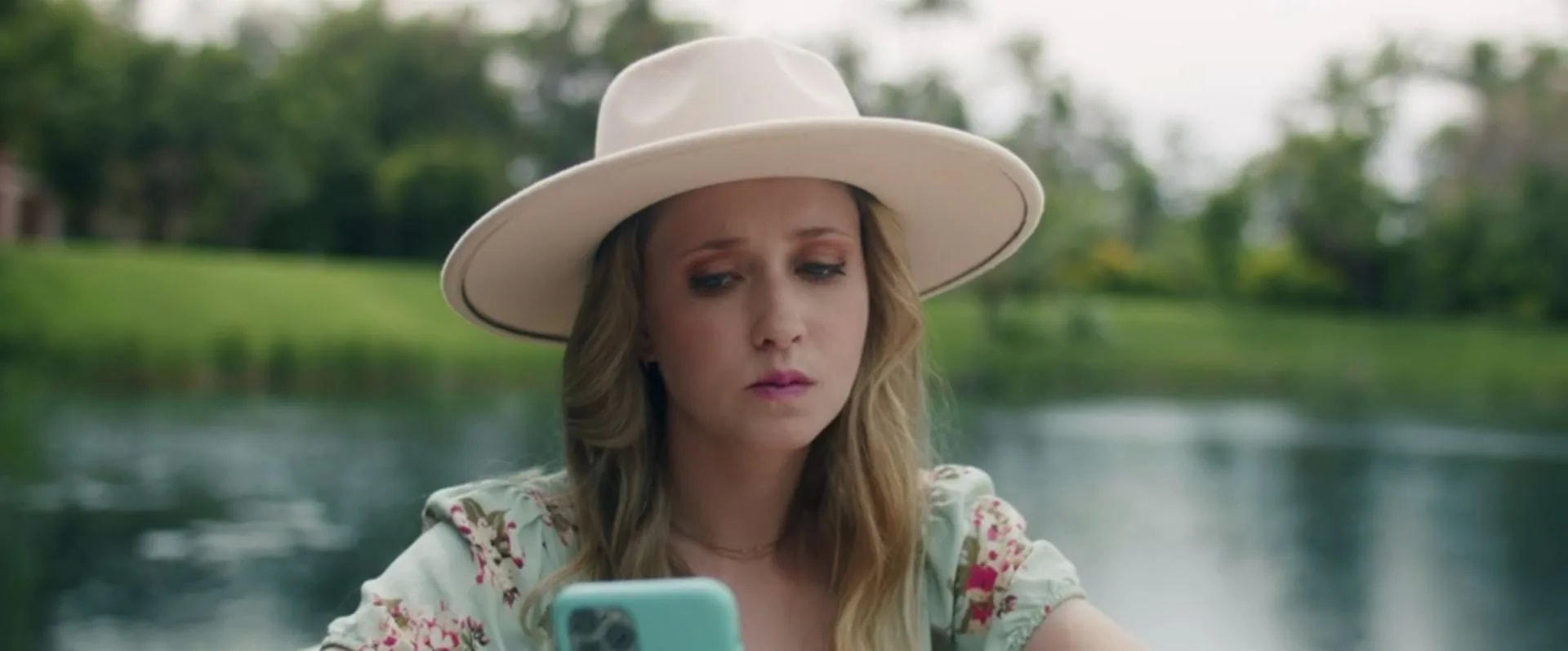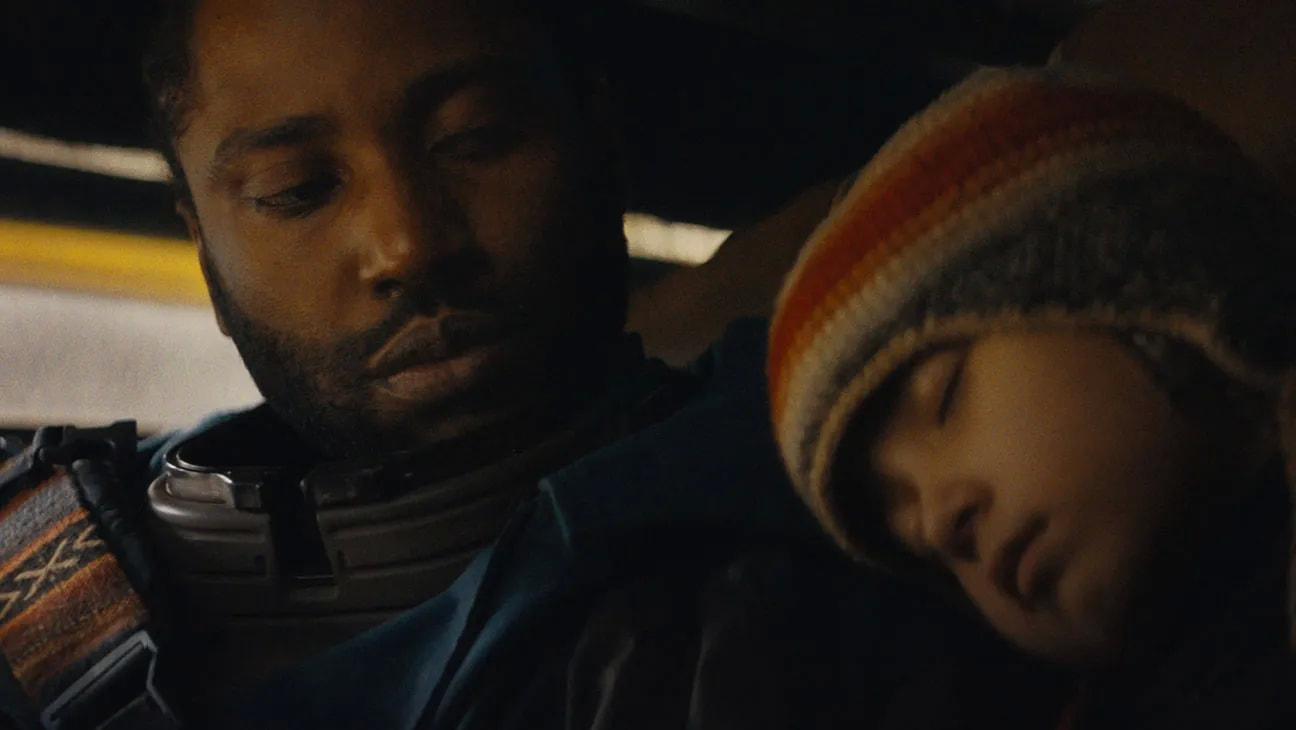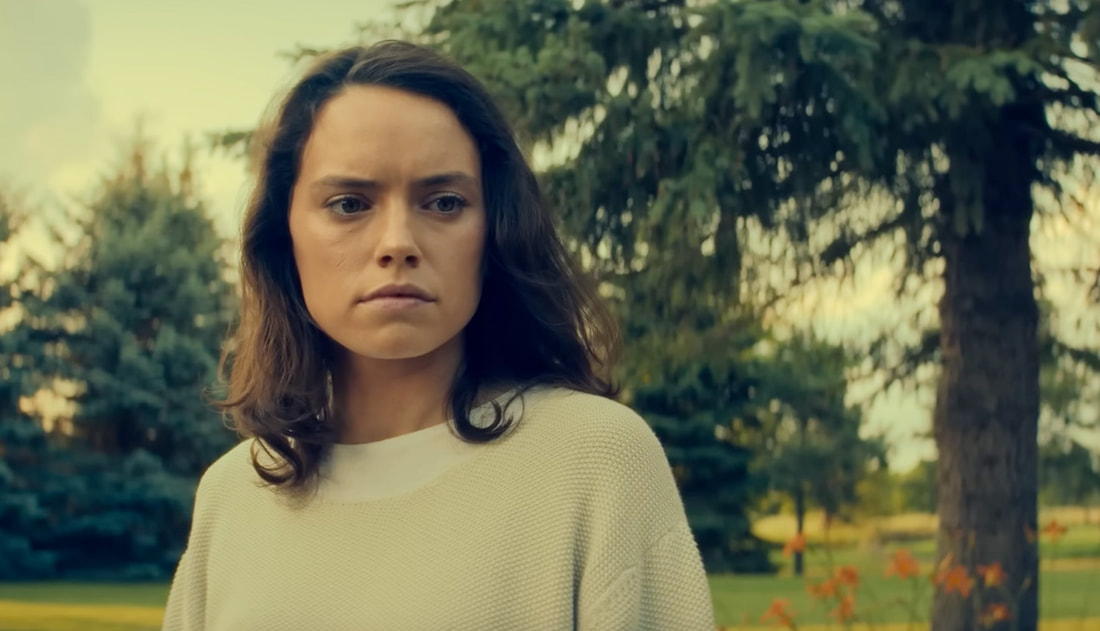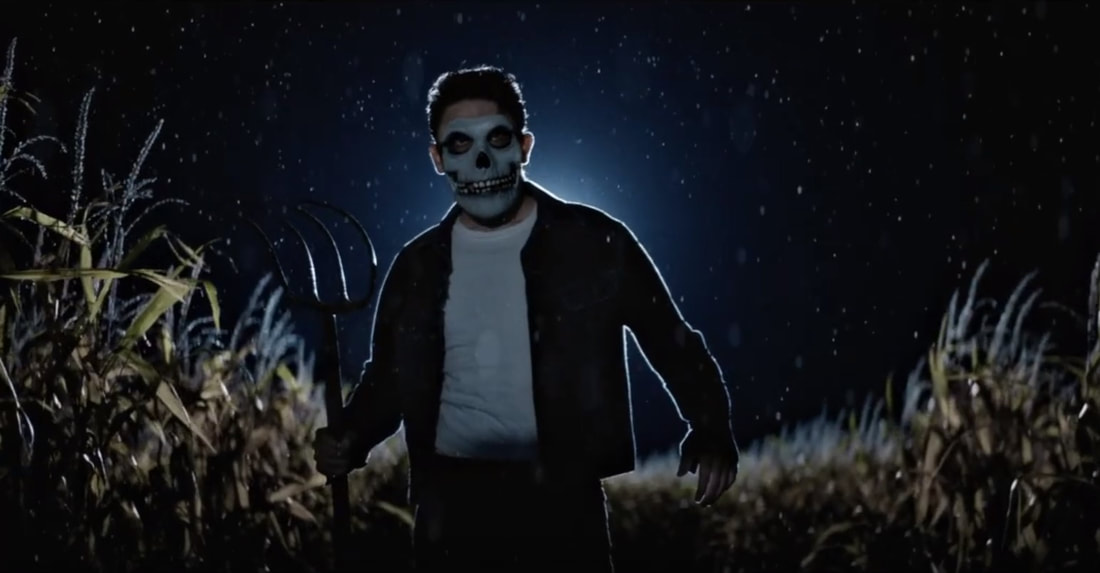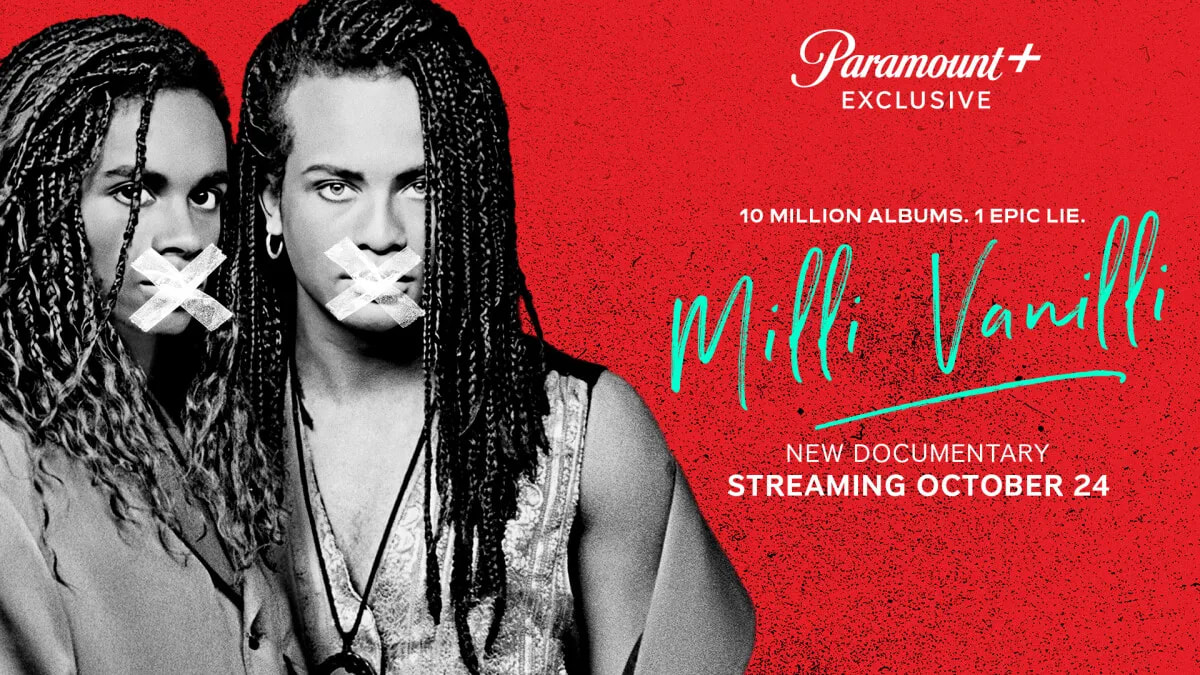|
by Julian Spivey Director: Nia DaCosta Starring: Brie Larson, Teyonah Parris & Iman Vellani Rated: PG-13 (action violence) Runtime: 1 hour & 45 minutes It’s been at least three years since Nia DaCosta (“Candyman”) was announced as the director of “The Marvels” and as a writer/director that means she has been thinking about this story for at least that long as well. I say this 1) because I doubt what is portrayed on screen here is all she had in mind (more on that later) and 2) because it’s important to remember the context of the Marvel Cinematic Universe into which films are released is not often the same context in which they were written or shot. DaCosta came on in the immediate aftermath of ‘Endgame’ - prior to the release of either “WandaVision” or “Ms. Marvel” and most importantly - prior to COVID, likely eager to continue the story of this newly minted Avenger and the prospect of the first ever MCU lady league. Taking that into consideration, “The Marvels” obviously arrives at a very different point in the MCU trajectory than DaCosta likely expected as steam has been lost and arguably a fair amount of quality as well. I hate to be a doomsdayer, but the one-two punch of COVID’s impact on the release schedule and the tragic loss of Chadwick Boseman threw a wrench into the MCU’s plans and as a result the whole operation into recovery mode in more ways than one. Prior to ‘Endgame,’ “The Marvels” would have nestled snuggly between ‘Homecoming’ and “Ant-Man” in terms of quality and stakes and no one would have batted an eye as it is both a smaller-scale team-up movie and a fun comic caper, but when the fate of the MCU is riding on something more equivalent to “Ant-Man and the Wasp” than ‘Civil War,’ folks will both be disappointed and continue to declare the end of this once bulletproof franchise. Now, I will admit that something is missing. Even if time and distance end up proving the cultural reaction to Phase 5 of the MCU was more determined by our tiredness of the franchise than the quality of the film’s themes, it still feels as if something is missing. That isn’t to say the magic is completely gone, but whether the direct fault of the individual movie of the moment or not the collective feeling is this is obviously not what it once was. So, all things considered: is “The Marvels” any good? It’s impossible to say how much of what we’re seeing on the screen this weekend comes from what DaCosta - along with co-writers Megan McDonnell and Elissa Karasik - originally envisioned those few years ago, but while DaCosta doesn’t really get to put her “spin” on a Marvel movie a la James Gunn or Taika Waititi, she does manage some memorable character interactions - immediately striking a winning balance of awkwardness and humor between our three leads - as well as some of the better, more creative action sequences in MCU history. The orchestration of the three leads, how their switching of places and the advantages of as much is illustrated via the action sequences is more than enough to commend DaCosta as a whole and more than makes up for the lack of delineation between the three different power sets. The more important part is that Brie Larson, Teyonah Parris and Iman Vellani almost immediately find a chemistry and rhythm that works for the different character dynamics at play. The soundtrack selections are pretty sick as well. Parris’ Monica Rambeau (who is working closely with Samuel L. Jackson’s Nick Fury on that space station from the post-credit scene in ‘Far From Home’) is forced to take on the role of the holdout due to her lack of trust in/communication with Larson’s Carol Danvers whereas Larson sticks with, kind of surprisingly so, the simple and straightforward approach; a no-nonsense attitude if you will, both of which are thankfully relieved by the presence of Vellani’s wonderstruck Kamala Khan. I enjoyed the “Ms. Marvel” series not only for the inclusion of this world and perspective it cultivated but largely for the sense of energy in tone and the thrill even a non-MCU fan could pick up on in Vellani’s performance and thankfully, Vellani brings all of that over from her series to this foray into the cosmos. In a film that goes for a tone that can handle and make credible an entire planet where the main mode of communication is musical numbers and a rescue mission that is executed by having kitty cats eat crew members, tone is absolutely key and Vellani’s performance is the only one that really locks in on this and not only makes her the highlight of the film but elevates everyone else around her. To this extent, between that tone, the costume designs, and even the production design on a few of the planets our heroes visit, this does sometimes veer into ‘Power Rangers’ territory. That is to say, it has a whole Saturday morning cartoon vibe to it - which, as a child of the ‘90s who grew up watching “Power Rangers” along with the animated “X-Men” and “Spider-Man” series on Saturday mornings, is not a derogatory comment - but whether or not that is what DaCosta or the MCU as a whole was going for here? Hard to say. Hard to say because DaCosta or maybe Kevin Feige brought in Sean Bobbit AKA Steve McQueen’s regular cinematographer AKA the guy who shot “12 Years a Slave,” “Shame” and “Widows” to shoot this film yet you wouldn’t know it until you saw his name in the credits. Not to say the film doesn’t have its moments aesthetically, but the aforementioned odes (intentional or not) combined with the still shabby visual effects in certain spots don’t make this something Bobbit would likely want to be featured on his IMDb page. Besides not taking advantage of having Bobbit as your cinematographer though, the biggest L The Marvels takes is with its villain. Zawe Ashton (Loki’s real-life partner) is Dar-Benn (a name I had to look up in order to cite here), a Kree general who is after the same bangle that gave Kamala her powers in order to restore her planet of Hala to the once prosperous place it was as it has sat deprived and dying since Captain Marvel sought revenge on the Kree for taking her life from them. The thing is, as the plot - which deals with Dar-Benn harvesting other planets' resources to reinvigorate Hala - unfolds it’s hard not to think this whole ordeal could have been handled more diplomatically. Like, I get that there needs to be heated conflict and more importantly, fight sequences, but it is kind of funny we’ve made this big deal about this being a female-centric superhero movie and given women as a sex have largely always championed resolution through discussion rather than fists it seems ill-fitting that the crux of this movie specifically is one that could have been resolved with some better trade discussions and an apology from Captain Marvel as she’s well-aware and even understands why the Kree harbor such hate toward her. Not wrong by any means, the constructs of the genre still have to exist no matter the sex of the hero and it’s not necessarily that it feels ironic, but more “The Marvels” feels like a missed opportunity to truly take a female-centric superhero movie to another, different, unexpected level. Instead, it sticks to the yuks rather than exploring any of the deeper emotions each of these characters - Monica, Carol, Dar-Benn, and even Kamala - are clearly dealing with. But hey, Fury’s interactions with the Khan family are hilarious so what do I know?
0 Comments
by Julian Spivey In December I saw something called the “12 Movies Challenge” on Facebook. The premise was that you would have 12 months to watch 12 movies recommended by 12 friends. I don’t often participate in such social media challenges but being a movie buff I felt this might be an interesting way to get out of my comfort zone a bit when it comes to watching movies. My Facebook buds gave me some films that I’ve been meaning to watch and I pretty much front-loaded those on the list – though not explicitly stated in the challenge rules I am opting to watch one film a month. A Best Picture winner like “Out of Africa” is an obvious choice for me to get to at some point – that point is now going to be March of this year. But there are certain movies I’m not really looking forward to all that much – I’m looking at you “The Ghost and Mr. Chicken,” my August selection. Then there’s the acclaimed stuff that isn’t really up my alley like the anime feature “Spirited Away,” which I’ve scheduled for November. That will truly be me getting out of my comfort zone. Here are the 12 movies recommended to me and the months I’ve assigned myself to watch them: January: “Merry Christmas, Mr. Lawrence” (1983) February: “Till” (2022) March: “Out of Africa” (1985) April: “Legally Blonde” (2001) May: “The Devil Wears Prada” (2006) June: “The Birdcage” (1996) July: “Morning Glory” (2010) August: “The Ghost and Mr. Chicken” (1966) September: “Pan’s Labyrinth” (2006) October: “Rocky Horror Picture Show” (1975) November: “Spirited Away” (2001) December: “The Last Laugh” (1924) There are times when watching art where you can admit something is fine cuisine but your palate just isn’t used to it and might never develop a taste for it. That’s kind of how I feel about Hayao Miyazaki’s “Spirited Away” (2001), which was my November recommendation from my friend Ben Keller as part of my year-long 12 Movies Challenge. I asked Ben before viewing the film if I should watch it with the English dubbing or in Japanese with English subtitles and he recommended the dubbing. I hope this isn’t considered some sort of movie sin. Now this might be a bit too on the nose because “Spirited Away” is a Japanese film but it just so happens that I’m not much for sushi. I much rather stick to the hamburgers and steaks that I’m used to. However, I can’t find any faults in “Spirited Away,” and if everyone from the Academy Awards to IMDb users and Roger Ebert to most of my friends who’ve seen it consider it to be an all-time great film I certainly won’t attempt to deny it. “Spirited Away” is the story of Chihiro, a 10-year-old girl, who while moving to a new city with her parents stumbles across a mystical world within a former theme park that includes a bathhouse for spirits. This bathhouse is run by a witch named Yubaba (dubbed in English by Suzanne Pleshette) who turns gluttonous humans, like Chihiro’s parents, into pigs. Yubaba doesn’t want humans in this world but has made some sort of pact that if they ask for a job within the bathhouse she can’t deny them, but she can steal their name and thus Chihiro becomes Sen within this world, but if she forgets her real name she will be stuck in this world forever. A lot is going on within this movie, some of which I understand and some I don’t and would probably have to be far more knowledgeable in Japanese folklore to ever truly understand – this was ultimately a film made for children, so I figure Japanese kids are far more advanced than American ones if they're getting some of this stuff. I’ve never been a huge fan of animation of any kind – movies, television, etc. – and have never entered the world of anime. So, “Spirited Away” is a first for me. And, while I’m not an expert on anything related to anime or animation in general I can say that the hand-drawn images for this film by Miyazaki are beautiful and amazing. This isn’t a way we’re accustomed to viewing animation today and it honestly wasn’t in 2001 either when the film was released, as it was mostly computerized by then. It’s amazing to see this art form in action. “Spirited Away” is the only hand-drawn animation to ever win the Oscar for Best Animated Film, though that category was ridiculously only instituted by the Academy in 2001 after most animation was done via computer technology. Next month we close out the 12 Movies Challenge of 2023 with the oldest film on the list - director F.W. Murnau's 1924 silent film "The Last Laugh."
by Philip Price Director: Meg Ryan Starring: Meg Ryan & David Duchovny Rated: R (language, some sexual reference & brief drug use) Runtime: 1 hour & 43 minutes Meg Ryan's “What Happens Later” is a movie as much about the relationship at the center of its story as it is the film's relationship with the rom-com genre. Both are in conversation with one another for the majority of the film, but what both are trying to say lands with different levels of success. While actress Meg Ryan, who after being out of the spotlight for several years and not having made a full-fledged romantic comedy since 2008 or so, makes it seem as if she's reclaiming her place atop the genre greats with this effort filmmaker Meg Ryan feels somewhat at odds with this decision. As “What Happens Later” unfolded I couldn't decide whether or not it was working to upend expectations while using the aesthetic and tone of your standard romcom to comment on the genre or if it was simply trying to hammer home how fraudulent everything in these kinds of movies truly is; highlighting the real conversations people are forced to have about love as they get older and realize they have less to look forward to and more to make up for. In the latter, they kind of obliterate everything we hold dear about the genre in terms of story beats and structure and the choice to play this so whimsically only reinforces the criticism of the genre as opposed to utilizing these staples by way of telling a different, more mature story than these movies usually do. I don't think I can draw a clear line between the film's ambitions and intent because I don't know that Ryan could either. She clearly has an affinity for the sweetness of the genre, but also clearly desires to lend some perspective to it by making a rom-com not about twentysomethings falling in love for the first time, but about sixtysomethings who have been chasing the high their first love gave them ever since it ended. It's a classic "can't have your cake and eat it too" scenario but damn it if Ryan doesn't try to revel in all the best parts of these mutually exclusive alternatives. In this regard, “What Happens Later” is essentially a "what if" movie meaning it's a theoretical take on what we might do given the opportunity to say everything to that one person we never had the opportunity to say everything we wanted to. The ideal setting, an unlimited amount of time and a set of circumstances that would never actually fall so perfectly into place to provide such an opportunity in order to provide clarity and peace around some of life’s biggest regrets. Cool, that's fine. I dig the pitch especially when considering how Ryan and her crew stage the conversations in these sparse, indeterminate settings where they are guided by the voice making announcements over the PA system in the airport. There is a line of dialogue in the film though that goes, "If we could see our memories in advance would we do anything different?" Now, this feels like a question with an obvious answer, but in the reality of executing course corrections, we would undoubtedly find such an endeavor more challenging than expected with the easier, more familiar route eventually becoming more attractive. The same thing feels like it happened to Ryan's film in that it seemingly wants to rewrite the rules of the rom-com but can't help but fall back into the way of the safer, but still satisfying conclusions of rom-coms of years past. A final note: I like David Duchovny and find him immensely charming and more than capable with this material, but he still feels miscast for one reason or another. I'm not sure how much the overall film might have changed as a result, but it arguably would have been more interesting to see Ryan and Tom Hanks round out their rom-com trilogy this far down the road, if not improving the execution at least adding more weight to the relationship history that is so much a part of this story. What if? This piece was written during the 2023 SAG-AFTRA strike. Without the labor of the actors currently on strike, the films being covered here wouldn't exist. by Philip Price Director: Sofia Coppola Starring: Cailee Spaeny, Jacob Elordi & Ari Cohen Rated: R (drug use and some language) Runtime: 1 hour & 53 minuts I've seen five of Sofia Coppola's eight narrative feature films (“Virgin Suicides,” “Marie Antoinette” and “Somewhere” are my blind spots) and the trapped, isolated, lonely woman is an obvious recurring theme in her work. This is no doubt what attracted the writer/director to Priscilla Presley's 1985 memoir Elvis and Me on which Priscilla is based. Telling the story of Priscilla's courtship with Elvis, beginning in 1959 when she was only 14 and Elvis was 24, Coppola's film very much feels like a collection of very specific instances and memories Presley recalls during the 13 years their lives crossed paths. These moments clearly left an indelible mark on what was otherwise a smitten teenager, but that would seemingly shape Presley into the woman she became; in many ways showing her a life she didn't necessarily want to lead. What makes Coppola's film so engaging are the conflicted feelings Presley experiences throughout her relationship with Elvis while the lack of any real momentum combined with a general knowledge of the events and timeline the film covers lend the film no real urgency regardless of the importance of this perspective. In last year's Baz Luhrman-directed, Austin Butler-starring “Elvis,” the scene in which Elvis meets Priscilla for the first time occurs just over an hour into the film after which it manages to distill this courtship down into a five-minute scene making Priscilla much more brash in the process which is notable given Cailee Spaeny's portrayal is far more reserved. Priscilla herself seemed thrilled with Luhrman's biopic but is also an executive producer on this film making the gray area all the more fuzzy. I wouldn't say “Priscilla” necessarily paints Elvis in a bad light as much as it does very much a man of his own time who handled his fame in the only way that seemed reasonable given the circumstances. Coppola's interpretation certainly makes it clear Elvis could be controlling (telling his young bride what to wear and how to style her hair), quick to lose his temper at the slightest sense of resistance, and would straight-up flirt with other women right in front of Priscilla's face, but the adapted screenplay also recognizes she is this man's safe haven and as much as she desired to do things for herself, she desired to serve that purpose for him as well. Now, I know what you're thinking, and it's a strong, "Hell no!" which is completely understandable and as a parent of a nine-year-old girl who couldn't stop considering how 14 is only five years off at several points during this viewing experience, I wholeheartedly agree. That said, and as previously stated, this is the crux of the arc we're meant to invest in and in that regard, the film does its job. Where it lost me was the lack of presenting any real core to the relationship, highlighting no real evidence of a connection so exceptional that Priscilla's presence rose above every other girl who fawned over Elvis along with the episodic nature of the pacing. We go from Germany in 1959 and the quiet, first encounters of these two strangers - one with a vast knowledge of and admiration for the other whereas Elvis had no inclination as to who Priscilla was. In fact, it kind of feels like Elvis initially only finds that aforementioned solace in Priscilla's presence because he's homesick, his mother has recently passed, and she is not only from back home, but the same region as him which proves to be what he needed at that moment in his life. On the other hand, such an experience must have been completely surreal for a 14-year-old fan who probably shouldn't have been put in this position in the first place. Priscilla's parents (Ari Cohen and Dagmara Dominczyk) find themselves in a tough spot trying to give their daughter some clemency for taking her away from her home and her friends, but despite the appeal and overwhelming charm Elvis no doubt displayed there is a part of them that had to know the kind of life they were submitting their daughter for no matter how much blowback they might receive initially. I get it, it’s the kind of once in a lifetime scenario you kind of have to see play out, but the fact of the matter is she was still far too young for them to even consider Elvis’ requests. This obviously is no fault of the film though how Priscilla herself chooses to defend/view Elvis' advances at her young age is one of the more fascinating aspects of this telling. The second and third acts of the film essentially break down into the second and third phases of their relationship meaning Priscilla moves to Memphis while still in high school so Elvis can see her more frequently in between movie shoots and eventually their marriage which only actually lasted six years (a fact I was admittedly surprised by). Though I haven’t read Priscilla’s book I’m interested to hear how Coppola’s film compares to the line Presley walked regarding what she revealed and what she kept to herself. The film never explicitly states the first time Elvis and Priscilla had sex only that he was keen to “wait for the right time”. There are two, maybe three insert shots of Priscilla with karate instructor Mike Stone which was a known affair, but again, the film doesn’t disclose this information as much as it does suggest it. While I understand the intent of this style given Coppola feels like the type of filmmaker who might take dailies to Presley and ask her if this is what a certain event feels like in her memory it also suggests she sacrifices some of the further confliction in Priscilla’s genuine love for Elvis that is challenged by her desire to lead a life of her own, something she would never have as long as they were together. It is this lack of emphasis on the relationship itself and more the commitment in tone to memory being more of a poet than a historian that makes what we’re seeing feel if not unfair, certainly biased. There’s nothing inherently wrong with this choice (it’s arguably more ambitious), but by the final shot of the film I couldn’t help but feel we’d learned about as much as the film had earned … not a whole lot. All of that said, having never seen Jacob Elordi in anything prior, he is very good here. This piece was written during the 2023 SAG-AFTRA strike. Without the labor of the actors currently on strike, the films being covered here wouldn't exist. by Philip Price Director: Kurtis David Harder Starring: Emily Tennant, Rory J Spear & Cassandra Naud Rated: Not Rated (Nudity, Violence & Language) Runtime: 1 hour & 32 minutes As vapid as the title might suggest this is, “Influencer” is actually one of the better (if not the best) horror/thriller I've seen this year. Like so many films these days this isn't necessarily presenting us with anything new, but what it's doing it's doing at a really high level. I love a movie that's smarter than it knows you're going to assume it is based on exterior factors and “Influencer” almost certainly takes advantage of its Shudder distribution, no marquee cast, and derisive title as each contributes to a certain kind of trashy B-movie perception that makes the fact this is actually a smart, twisty take on the role of social media not just in our lives but in the world at large all the better as said commentary is much more astute than it is mocking; never losing itself in its sermon, but instead letting the character choices and tone speak for themselves. Not only does director Kurtis David Harder (who also co-wrote the movie with Tesh Guttikonda) take advantage of the preconceived notions around his film, but he then steps it up further to convince us we're watching something made with real intent and awareness of style (as well as some vast knowledge of the genre) by managing to have his film aesthetically look like the staged, phony world presented via Instagram while also coming off as a credible feature film with purpose. Further, (and this is when I really knew we were in good hands) Harder drops the title card for his film thirty minutes into the runtime. This may not seem like that big of a deal, but the placement within the story and the way it combines with the soundtrack to kind of deftly say to the audience, "Okay, let's really get going now..." not only enhances the pacing but revives interest in where the narrative could possibly go given the end of the first act feels rather finite. The fact the very next scene follows the character I didn't expect us to stick with told me all I needed to know about what might happen over the next hour and that was that I didn't know anything at all. And while the second act of the film is saddled with a lot of explaining this execution is also cleverly handled as it works both in harmony as well as in contrast with the events of the first act. Employing tricks of the trade to manipulate the tone of a procedure we've already seen work successfully to then feel more menacing is not a new trick of the trade in and of itself, but it is especially effective in this instance given the flexibility of Cassandra Naud's CW who seems to only know how to interact with people by scanning them upon meeting them and figuring out what type of person they want in their life and then immediately becoming that person. This of course makes Naud's performance a barn burner as she alternates between identities depending on her audience, but more so it serves as the - if not exactly subtle - very savvy commentary concerning how social media has enhanced and distorted the tendencies already inherent in human interaction. By the final half hour of the film, things have gone so awry for each character in such unexpected fashions that it's genuinely hard to say where the film might land regarding each of the arcs in play which (naturally) continues to make it exciting. The boyfriend role (Rory J Saper) is the weak link of the movie in terms of both performance and subtext, which is tough considering he factors into the final act quite heavily, but there is an interesting transformation taking place even if Saper isn't compelling enough to fully land the plane on why. Moreover, the underlying yet most distinct theme in “Influencer” is that of loneliness. The film doesn't revolve around this idea meaning it doesn't have long, lingering shots of characters sitting alone staring at their screens so as to inspire contemplations of what they present to the world versus how they truly feel, but it does investigate how easy it is to become the person your acquaintances would like in their life and therefore how easy it is to become lost without someone to guide you; to base your personality off of. This piece was written during the 2023 SAG-AFTRA strike. Without the labor of the actors currently on strike, the films being covered here wouldn't exist. by Philip Price Director: Gareth Edwards Starring: John David Washington, Madeleine Yuna Voyles & Gemma Chan Rated: PG-13 (violence & language) Runtime: 2 hours & 13 minutes “The Creator” is visually absorbing if not thematically so. Though the ideas it's playing with and tropes it's utilizing may not be as shallow as they initially appear they tend to feel cursory due to the fact writer/director Gareth Edwards (“Rogue One”) never finds the right groove for his film to slide into. “The Creator” is ultimately a movie of fits and starts in which each new promise of something exciting and/or interesting never fully delivers on as much. It's an odd feeling, really, given mere minutes into the film I was bowled over by the authenticity imbued on an image of a massive spacecraft hovering over a more natural (and clearly real) location. I'm a sucker for when films can integrate futuristic or not yet realized elements into a more common and recognizable environment and Edwards has a great eye for such combinations that really allow both components to pop, but while I was immediately in on the aesthetic I kept wondering when I was going to be made to care or even be wowed by anything other than the framing. Aside from a few in-world inventions, performance moments (largely from Madeleine Yuna Voyles in a really wonderful and really complicated role for a child to play), along with some questionable story turns there wasn't anything that made me sit up in a way that I was inclined to lean forward. Rather, I kind of shifted my weight to the other armrest to consider why the film didn't seem interested in leaning into its ideas either. The mission is fairly straightforward, but the intentions are not … always. Weirdly, and despite admitting it was beings operating on artificial intelligence who nuked Los Angeles, “The Creator” is determined to convince us the only thing left of our souls are the fingerprints we left on the programming within the robots we're now at war with. Joshua's (John David Washington) entire arc is that of going from the former soldier who harbors hate for robots coming around on them because of an emotional connection meant to be a revelatory moment in the third act yet we know that he knows this child is not real, that it is just programming, and that despite what feelings may have developed, underneath we are not all the same. Many a parallel could be drawn around the analogous nature of the story and I certainly understand the validity of what feels real sometimes holding more merit and importance than what may be factual, but strictly in terms of the debate around A.I. - this feels like an odd time to make this argument. Whether future viewings occur or not, I'd like to believe there is more going on underneath the surface than my initial screening would indicate as I haven't yet worked out the potential meaning for having Joshua and Alphie's desires be so aligned and greater than that of the semantics taking place around them that they're unwillingly caught up in. I do know that the concept of transferring someone's last moments of consciousness to a robot via flash drive so that others may share in them or gain information from them was pretty sick, that Ralph Ineson's voice is just insane, and that I didn't really clock Hans Zimmer's score at all despite this being right square in the middle of his wheelhouse which was ... disappointing ... to say the least; much like the experience overall. This piece was written during the 2023 SAG-AFTRA strike. Without the labor of the actors currently on strike, the films being covered here wouldn't exist. by Philip Price Director: Neil Burger Cast: Daisy Ridley, Ben Mendelsohn & Garrett Hedlund Rating: R (violence) Runtime: 1 hour & 49 minutes Director Neil Burger (“Limitless,” “Divergent”) is a reliable set of hands to place your stock adaptation of a popular airport thriller in and if nothing else, “The Marsh King’s Daughter” demonstrates just how dependable Burger is at executing, if not elevating what could easily be dismissed as a Lifetime movie. Ironically, this is the kind of psychological drama audiences would flock to theaters to see in decades past when such material was placed in the hands of filmmakers like Martin Scorsese and Alan Pakula. Though it's highly doubtful this adaptation of Karen Dionne's 2017 bestseller will shape any future box office trends it is nice to see something like “The Marsh King’s Daughter” - a movie with good bones, a strong premise, and something of a movie star in Daisy Ridley's roundabout franchise way - getting a wide release as any option for a sequel or opportunity to franchise are seemingly completely off the table. As refreshing as all this might feel in our current cinematic landscape, there is unfortunately still something rather rote about the experience of “The Marsh King’s Daughter” for, while those bones are solid, Burger's film doesn't really stand to support much depth or a stand-out performance that takes it beyond the genre stratosphere. There is potential for such, whether that be in exploring the current state of Ridley's Helena Pelletier who is in a constant state of trying to convince herself that the life she's leading is the right one after finding out the one person she believed in the most was really a monster; the movie naturally taking place when this person, this father figure, comes back into her life after 20 years. Or, one of these actors might have taken the opportunity to really infuse the material with some electricity (ahem, Ben Mendelsohn), but instead, things are played fairly safe and straightforward leaving the movie feeling predictable and uninspired. It's easy to miss some of the directorial choices Burger makes that add some subtlety and nuance to the father/daughter relationship between Mendelsohn's titular character AKA Jacob Holbrook and Ridley, but while the film and the performance do a good job of allowing Mendelsohn's presence to loom over much of the proceedings we never truly feel we understand the guy's motivations even when he states them plainly. We don't buy it. Furthermore, it almost feels as if Mendelsohn should have leaned more in one direction or the other to either emphasize how much of a loose cannon Holbrook could be or make him more of an enigma; showing remorse for his actions despite his inability to control his impulses. Either choice might have then amplified the profundity of the ramifications his actions had on his daughter who has spent the majority of her life figuring out what pieces of her father, if any, she should keep and how she exists outside of his influence, if at all. The film has something of a prologue showing us the appeal of Holbrook to his daughter (played in flashback by Brooklynn Prince) which also serves as a blueprint for where/how the story will unfold as well as outlining the character's inclinations and conditioning so that we understand and believe their choices later. We see the instillation of Helena's pessimism, the ruthlessness of Holbrook and his lack of pity or sympathy in any situation. I mention this prologue specifically because it includes some of the best moments in the film in terms of tension and character work. Convincingly painting a portrait of how someone, especially an impressionable child, can come to have positive feelings toward a captor and sympathy for their causes while developing negative feelings toward outside authority figures. The first 20 or so minutes of the film highlight this turn while the remaining hour and a half feels as if it never finds its footing in trying to dissect how one undoes that damage and indoctrination. A special shoutout to Caren Pistorius though, who plays Helena's mother and whose eyes and expressions in certain scenarios say more than any dialogue could. The final climactic sequence carries some impressive stunt work and thrilling action, but if you're coming to the film because you believe it to be an action thriller, I'm afraid you'll leave pretty disappointed as most of the action is contained to the third act. While a lack of chase sequences or shootouts might prove disappointing for some, I doubt they would be as disappointed in the film as a whole as I was in the lack of attention paid to Ridley and Garrett Hedlund's marriage in the film. Nothing about the relationship makes sense. Like, we get that Helena is supposed to be permanently distant from everyone in her life outside of her own daughter - which, is another can of worms this doesn't really dive into - but there are certain, specific shots that would seemingly be included for very specific reasons that are never addressed otherwise. It's as if a whole subplot was cut that deals with Helena's inability to function in a normal, loving relationship and all that's left are these remnants that make her as a person as well as Ridley's performance feel unnatural. Which, I guess is what I was asking for when I said something needed to rise above the routine here, but these oddities don't so much elevate “The Marsh King’s Daughter” as they do signal a lack of investment in this kind of storytelling. This piece was written during the 2023 SAG-AFTRA strike. Without the labor of the actors currently on strike, the films being covered here wouldn't exist. by Philip Price Dark Harvest I had no idea what this was about or that it was based on a novel going in, I only knew that David Slade made an underrated banger in “30 Days of Night” that I liked when I was 20 and that one AFI music video back in the day, but damn! I didn't expect this! I love a movie that completely creates its own world and in the case of “Dark Harvest” builds something of an alternative reality while also being a period piece set in the 1960s. Establishing the rules of this world while also keeping plenty of mystery intact Slade's adaptation of Norman Partridge's story balances this task and tone with great atmosphere (Slade bathes nearly every shot in the blue moonlight) that, along with Brian Reitzell's really cool score, emphasizes the heightened experience of it all while somehow still landing some emotional pull and thematic resonance by the final act. It should also be noted that the film's antagonist, a Pumpkinhead-esque creature named Sawtooth Jack (which maybe should have been the name of the movie?), is a real treat in terms of conceptualization and execution. It's clear “Dark Harvest” doesn't have the biggest budget, but the practical effects work utilized to bring him to life and conduct his movement are especially chilling while also showing off a few tricks when it comes to the slick, but gnarly kills he doles out. It may get a little too far out there to land for some, but the ideas around getting so lost in a system or tradition that we lose sight of the purpose of our actions are really driven home by Casey Likes' frustration and anger as he tears through the town on Halloween night. It also doesn't hurt that Luke Kirby is just all the way going for it and loving it. Milli Vanilli I was 10 years old when I watched the VH1 “Behind the Music” episode about Milli Vanilli and it was the first time I'd heard of them or the scandal around them. I think it may have premiered even before Rob's death, though when I was watching this new documentary I for some reason thought Rob had committed suicide by jumping from a building or hotel room. Anyway, the point is, I realized there were a lot of assumptions I'd made or been led to believe about the Milli Vanilli story while watching director Luke Korem's film as the crux of this recounting is whose idea the whole hoax was in the first place. There is still speculation to be had as no one owns up to things outright (Fab has his version, Ingrid Segieth has hers, and Frank Farian - at 82 years old - didn't care to talk about it), but there is kind of a bias based not only on what we want to be true but given the tone of the talking head interviews from both Fab and Ingrid. We will never know the absolute, 100% truth of what went down in that studio in Germany, but like the thesis the documentary settles on, it doesn't seem that debate matters all that much when one considers the heartbreak caused by the repercussions of the scandal. Mostly, the regret we see in the stories these people tell has been overcome, but it is the tinge of sadness knowing it didn't have to go down the way it did that will forever resonate and is what lends Korem's film a genuine soul. "Milli Vanilli" is streaming on Paramount+. |
Archives
July 2024
|
